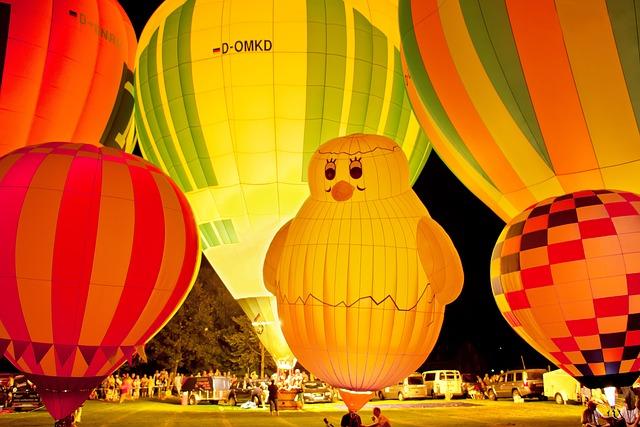Night Air: Fresh Breeze or Health Freeze?
Picture this: It’s a balmy summer evening, and you decide to take a leisurely stroll outside to enjoy the cool night air. But wait, is that breeze actually doing your health any good, or should you be reaching for the thermostat instead? In this article, we delve into the debate of whether night air is a fresh breeze or a health freeze. Let’s debunk the myths and uncover the truth about the air we breathe after dark.
Contents
- Is Night Air Good for Your Health? Let’s Find Out
- Benefits of Breathing in Fresh Night Air
- Potential Risks of Exposing Yourself to Night Air
- Tips for Enjoying the Night Air Safely
- Balancing the Benefits and Risks of Night Air
- Maximizing the Positive Effects of Night Air
- How to Protect Yourself from Negative Health Effects of Night Air
- Enjoying Fresh Night Air: A Healthy Practice
- Conclusion: Night Air – Friend or Foe?
- Concluding Remarks
Is Night Air Good for Your Health? Let’s Find Out
During the warmer months, many people enjoy spending time outside in the evening, taking in the cool night air. But is night air actually good for your health? Some believe that fresh night air can have a positive impact on our well-being, while others may worry about potential hazards.
**Benefits of Night Air:**
- Improves sleep quality
- Reduces stress and anxiety
- Boosts mood and mental well-being
**Potential Risks of Night Air:**
- Exposure to pollutants and allergens
- Risk of insect bites or stings
- Potentially cooler temperatures leading to discomfort or illness

Benefits of Breathing in Fresh Night Air
When you step outside at night and take a deep breath of the fresh air, you might be doing more for your health than you realize. Breathing in the crisp night air can have numerous benefits for your body and mind. Here are some reasons why embracing the night breeze can be beneficial:
- Improved Sleep: The cool night air can help regulate your body temperature, making it easier to fall asleep and stay asleep throughout the night.
- Reduced Stress: Taking deep breaths of fresh night air can help calm your mind and reduce levels of stress and anxiety.
- Boosted Immune System: Fresh air is rich in oxygen, which can help increase the levels of oxygen in your blood and strengthen your immune system.
| Benefit | Description |
|---|---|
| Improved Sleep | The cool night air can help regulate your body temperature, making it easier to fall asleep. |
| Reduced Stress | Fresh night air can help calm your mind and reduce levels of stress and anxiety. |
Potential Risks of Exposing Yourself to Night Air
Exposing yourself to the night air can be refreshing after a long day indoors, but it’s important to be aware of the potential risks that come with it. While the fresh breeze may feel invigorating, there are some health concerns to keep in mind when spending extended periods outside after dark.
1. Increased exposure to allergens: Night air can carry high levels of pollen, mold spores, and other allergens that can trigger allergy symptoms or asthma attacks in susceptible individuals.
2. Risk of insect bites: Mosquitoes and other insects are more active during the evening hours, increasing the likelihood of being bitten and potentially exposed to insect-borne diseases.
3. Temperature fluctuations: Nighttime temperatures can drop rapidly, leading to a risk of catching a cold or developing flu-like symptoms if not properly dressed for the cooler conditions.
Incorporating protective measures such as wearing long sleeves, using insect repellent, and monitoring pollen levels can help mitigate these risks and allow you to enjoy the benefits of the night air without compromising your health.
Tips for Enjoying the Night Air Safely
Whether you’re taking a leisurely stroll under the stars or enjoying a late-night bonfire with friends, the night air can be a refreshing experience. However, it’s important to prioritize your health and safety while enjoying the nighttime breeze. Here are some tips to help you make the most of the night air:
- Stay hydrated by drinking plenty of water throughout the evening.
- Wear appropriate clothing to stay warm and protect yourself from the cool nighttime temperatures.
- Avoid heavily polluted areas to prevent respiratory issues.
- Use insect repellent to ward off pesky bugs that are more active at night.
By following these simple tips, you can ensure that your nighttime adventures are both enjoyable and safe. Don’t let the fear of health risks freeze you out of enjoying the fresh breeze of the night air!

Balancing the Benefits and Risks of Night Air
When it comes to the air we breathe at night, there is always a debate on whether it is beneficial or harmful to our health. Some people swear by the fresh, crisp breeze that night air brings, claiming it helps them sleep better and feel more refreshed in the morning. Others, however, worry about the potential risks of breathing in pollutants or allergens that may be more prevalent at night.
It is important to strike a balance between the benefits and risks of night air to ensure that you are taking care of your health while still enjoying the outdoors. Here are some factors to consider:
- Benefits:
- Improved sleep quality
- Reduced stress and anxiety
- Boosted mood and mental well-being
- Risks:
- Pollution and allergens in the air
- Potential exposure to mosquito-borne illnesses
- Inhaling cold air may exacerbate respiratory conditions

Maximizing the Positive Effects of Night Air
When it comes to the night air, opinions are often divided. Some people swear by the refreshing breeze that wafts through their windows, while others fear the potential negative health effects. However, with a few simple steps, you can maximize the positive effects of night air and enjoy all its benefits.
One way to do this is by ensuring proper ventilation in your bedroom. Opening a window or using a fan can help improve air circulation and prevent stale air from lingering. This can lead to better sleep quality and a more restful night’s rest.
- Keep windows open during the night to let fresh air in.
- Use a fan to circulate air and maintain a comfortable temperature.
- Consider investing in an air purifier to filter out any pollutants or allergens.
| Improved sleep quality | Fresher indoor air | Increased sense of well-being |
|---|---|---|
| ✔️ | ✔️ | ✔️ |

How to Protect Yourself from Negative Health Effects of Night Air
Night air can be soothing and refreshing, but it can also have negative health effects if not managed properly. Here are some tips to protect yourself from potential harm:
- Avoid stagnant areas: Try to stay away from places with poor air circulation, such as alleyways or closed-off spaces.
- Use a fan: Keeping air moving can help prevent the buildup of pollutants and allergens in your immediate vicinity.
- Consider using an air purifier: These devices can help filter out harmful particles and improve air quality in your home.
| Tip | Benefit |
|---|---|
| Open windows during the day | Allows fresh air to circulate |
| Avoid smoking indoors | Reduces exposure to harmful toxins |
By taking these precautions, you can enjoy the benefits of night air without risking your health.

Enjoying Fresh Night Air: A Healthy Practice
Many of us enjoy taking a leisurely stroll on a cool evening, reveling in the fresh night air that surrounds us. But is this practice truly beneficial for our health, or could it potentially pose risks? Let’s delve into the debate surrounding the concept of indulging in the night air.
Some may argue that breathing in the cool night air can be refreshing and invigorating, helping to clear our minds and rejuvenate our bodies. Others, however, may raise concerns about potential pollutants or allergens that could be present in the air, especially in urban areas.
Ultimately, it’s important to strike a balance between enjoying the benefits of fresh night air and being mindful of any potential risks. Incorporating regular walks in the evening into your routine can be a great way to unwind and de-stress, but always be aware of your surroundings and listen to your body’s cues.

Conclusion: Night Air – Friend or Foe?
Night air has long been a subject of debate – is it our friend, providing us with a cool and refreshing breeze on a hot summer night, or is it our foe, potentially causing health issues if breathed in for extended periods of time? While some may argue that night air is simply nature’s way of rejuvenating our senses, others may caution against spending too much time outdoors after dark.
One thing to consider is the quality of the night air you are breathing. In more urban areas, night air may contain pollutants and allergens that can exacerbate respiratory conditions. On the other hand, in rural areas or near bodies of water, the night air may be cleaner and more invigorating. It’s important to be mindful of your surroundings and take precautions if you have any sensitivities to air quality.
In conclusion, while night air can be a source of relaxation and enjoyment, it’s crucial to be aware of the potential risks associated with breathing it in. By taking simple steps like avoiding heavily polluted areas and using air purifiers in your home, you can continue to enjoy the benefits of a fresh night breeze without jeopardizing your health.
Concluding Remarks
As we wrap up our discussion on the topic of “Night Air: Fresh Breeze or Health Freeze?”, it’s important to remember a few key takeaways. While a breath of fresh air can be invigorating, it’s crucial to consider the potential health risks associated with prolonged exposure to pollutants and allergens in the nighttime air. Take steps to protect yourself by keeping windows closed during high pollution times, using air purifiers, and monitoring air quality levels. Remember, a good night’s rest is essential for overall well-being, so make sure you’re breathing in clean, fresh air while you sleep. Stay informed, stay safe, and breathe easy. Goodnight!







